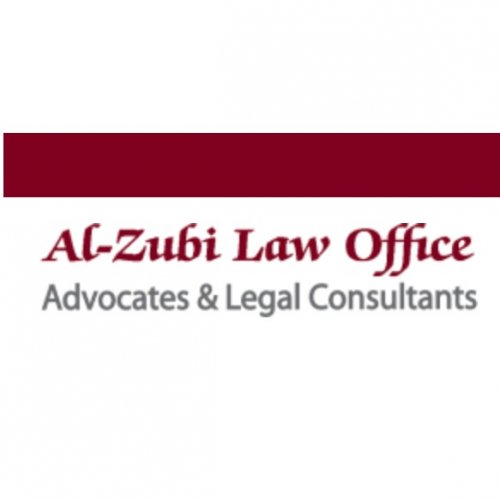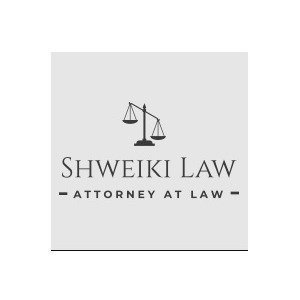Best Private Equity Lawyers in Palestine
Share your needs with us, get contacted by law firms.
Free. Takes 2 min.
Or refine your search by selecting a city:
List of the best lawyers in Palestine

Istikamah For Advocates And Legal Services - استقامة للمحاماة والخدمات القانونية
15 minutes Free ConsultationAbout Private Equity Law in Palestine
Private Equity involves investment in companies, usually in the form of funding provided by private individuals or institutions rather than through public trading on stock exchanges. In Palestine, Private Equity is an emerging field that aims to support business growth, entrepreneurship, and economic development. Both local and international investors look to Private Equity as a way to invest in promising private enterprises and startups.
As the economic landscape in Palestine evolves, Private Equity has become an essential tool for injecting capital into key sectors, enhancing competitiveness, and improving the overall business environment. The legal framework surrounding Private Equity is designed to protect the interests of both investors and businesses while promoting sustainable growth.
Why You May Need a Lawyer
Engaging in Private Equity transactions can be complex due to the significant financial interests at stake and the requirements of local laws. Here are some common situations where legal advice is crucial:
- Structuring investment deals and negotiating terms
- Conducting due diligence on potential investments
- Drafting and reviewing contracts or shareholder agreements
- Ensuring compliance with Palestinian corporate and investment regulations
- Protecting investor rights and managing disputes
- Handling cross-border investment issues or challenging regulatory scenarios
Legal professionals ensure that deals are enforceable, fair, and in line with all local rules. They can anticipate potential risks, provide strategic advice, and represent your interests in negotiations or disputes.
Local Laws Overview
Private Equity in Palestine operates within a developing but robust legal environment. The main regulatory authorities are the Palestinian Capital Market Authority and the Ministry of National Economy.
Here are key aspects of the legal landscape relevant to Private Equity:
- Company Law: Governs the formation, operation, and dissolution of companies, including regulations for Limited Liability Companies and Joint Stock Companies, which are common vehicles for Private Equity investment.
- Foreign Investment Law: Sets specific requirements and incentives for foreign investors, such as registration procedures and permitted sectors.
- Securities Law: Regulates the issuance, trading, and ownership of securities, which can affect Private Equity transactions if shares or convertible instruments are involved.
- Taxation: Determines the tax obligations for investors and portfolio companies, including capital gains tax and possible exemptions for certain investment activities.
- Anti-money laundering and compliance: Requires transparency in funding sources and strict reporting obligations to mitigate risks.
It is important to stay informed about any legal updates or reforms, as the regulatory environment in Palestine continues to evolve with the growth of its private sector.
Frequently Asked Questions
What is Private Equity and how does it work in Palestine?
Private Equity in Palestine involves investing capital into private companies that are not publicly listed, typically to help them grow or restructure. Investors can include individuals, private equity funds, or institutional investors, who gain ownership shares in return for their investment.
Who regulates Private Equity investments in Palestine?
The Palestinian Capital Market Authority is the primary regulatory body overseeing investment activities, including Private Equity. The Ministry of National Economy and other agencies may also be involved depending on the nature of the investment.
Can foreign investors participate in Private Equity in Palestine?
Yes, foreign investors can engage in Private Equity activities in Palestine, subject to regulations governing foreign ownership, registration, and sectoral restrictions.
What types of businesses can receive Private Equity investments?
Most business types are eligible to receive Private Equity, with a focus on sectors such as technology, manufacturing, services, and agriculture. Restrictions may apply to sectors deemed sensitive or strategic by the government.
What legal structures are used for Private Equity deals in Palestine?
Common legal structures include Limited Liability Companies and Joint Stock Companies. Special Purpose Vehicles are sometimes set up for specific investment projects.
What is due diligence and why is it important?
Due diligence is the process of thoroughly reviewing the financial, legal, and operational aspects of a potential investment target. It helps investors identify risks and ensures informed decision-making.
How are disputes in Private Equity transactions resolved?
Dispute resolution mechanisms are usually outlined in contracts and can include negotiation, mediation, or arbitration. Courts can also be involved if necessary.
Are there any tax incentives for Private Equity investors in Palestine?
There may be tax incentives or exemptions, particularly for investments that create jobs or support economic development. It is important to review current applicable tax laws and consult a lawyer for up-to-date advice.
What documentation is required for Private Equity investments?
Key documents typically include a term sheet, investment agreement, shareholder agreement, corporate resolutions, and due diligence reports. These documents must comply with local laws and regulations.
How can I ensure compliance with anti-money laundering laws?
Investors must provide transparent documentation of funding sources, conduct rigorous checks on counterparties, and follow all reporting obligations set by the Palestinian authorities.
Additional Resources
If you are seeking further information or legal support on Private Equity in Palestine, the following organizations and resources may be helpful:
- Palestinian Capital Market Authority (PCMA) - for regulatory guidance and licensing information
- Ministry of National Economy - for investment regulations and business registration
- Palestinian Investment Promotion Agency - for incentives and investor services
- Local chambers of commerce and professional business associations
- Law firms and financial advisory companies specializing in Private Equity
These bodies provide up-to-date information and can direct you to specialized support for your investment needs.
Next Steps
If you need legal assistance in Private Equity, here’s how to proceed:
- Assess your investment goals and the nature of your involvement, whether as an investor, entrepreneur, or advisor.
- Contact a lawyer or law firm experienced in Private Equity and corporate law in Palestine. Request an initial consultation to discuss your needs and objectives.
- Prepare any relevant documents, such as business plans or company records, to facilitate a thorough review.
- Ask about the lawyer’s experience with similar transactions, their familiarity with local regulations, and their approach to managing risks.
- Work closely with your legal advisor throughout the process to ensure every step complies with Palestinian law and best industry practices.
Taking these steps will help protect your interests and lay a solid foundation for successful Private Equity investments in Palestine.
Lawzana helps you find the best lawyers and law firms in Palestine through a curated and pre-screened list of qualified legal professionals. Our platform offers rankings and detailed profiles of attorneys and law firms, allowing you to compare based on practice areas, including Private Equity, experience, and client feedback.
Each profile includes a description of the firm's areas of practice, client reviews, team members and partners, year of establishment, spoken languages, office locations, contact information, social media presence, and any published articles or resources. Most firms on our platform speak English and are experienced in both local and international legal matters.
Get a quote from top-rated law firms in Palestine — quickly, securely, and without unnecessary hassle.
Disclaimer:
The information provided on this page is for general informational purposes only and does not constitute legal advice. While we strive to ensure the accuracy and relevance of the content, legal information may change over time, and interpretations of the law can vary. You should always consult with a qualified legal professional for advice specific to your situation.
We disclaim all liability for actions taken or not taken based on the content of this page. If you believe any information is incorrect or outdated, please contact us, and we will review and update it where appropriate.
Browse private equity law firms by city in Palestine
Refine your search by selecting a city.















